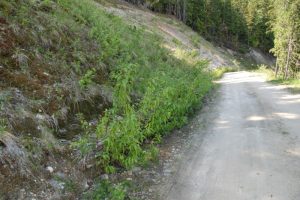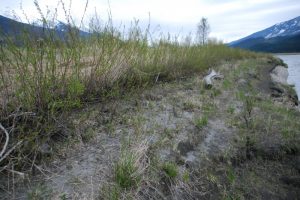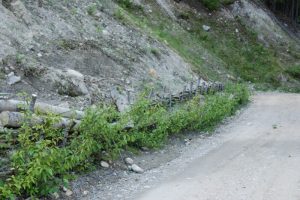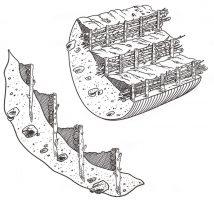Bio-engineering: A Restoration Course(s)
- Start Date: October 18, 2016
- End Date: October 21, 2016
- Time: 8:30am-4:30pm
- City: Revelstoke BC
- Venue: Okanagan College
- Instructor: David Polster
Course description
Soil bioengineering is an applied science that uses live plant materials, rocks, soil and landscape elements to perform an engineering function such as slope stabilization, soil erosion control or seepage control.
Topics covered include:
- Factors involved in successful restoration
- Successional reclamation, with discussion of tools such as:
- Wattle fences can be used to treat steep slopes. The terracing reduces erosion while the wood cuttings grow to provide a vegetative cover on the slope.
- Live staking: taking live cuttings of shrubs and staking them in the ground where there is a lack of vegetation along eroding stream banks. The clippings will re-sprout and establish new vegetation.
- Soil bioengineering techniques
- Regional differences in climate, soils, hydrology, plant types, and growing seasons
- Maintenance and monitoring.
Course Format
- Day One: A classroom session to be held in Revelstoke (location TBA).
- Day Two: A field session near the Arrowhead ferry landing to give participants hands-on experience with a restoration project.
Two courses were offered both of which were fully subscribed: Oct 18-19 and Oct 20-21.
Instructor
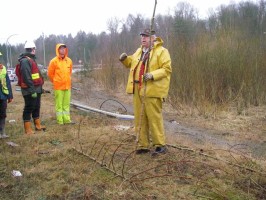 David Polster has been involved in the reclamation of severely disturbed sites for over 40 years. He has been president of the Canadian Land Reclamation Association for a number of years and continues to serve on their board, in addition to sitting on the board for the Society for Ecological Restoration (both the BC Chapter and International board). He has been awarded the John Rieger Award for his work in restoration, and serves as the alternate mining representative on the board of the BC Invasive Species Council. Dave is well known for his work in the use of soil bioengineering treatments to solve difficult reclamation problems. He regularly shares in knowledge by teaching a number of courses, including a post-graduate certification program in designing for natural processes at the University of Victoria.
David Polster has been involved in the reclamation of severely disturbed sites for over 40 years. He has been president of the Canadian Land Reclamation Association for a number of years and continues to serve on their board, in addition to sitting on the board for the Society for Ecological Restoration (both the BC Chapter and International board). He has been awarded the John Rieger Award for his work in restoration, and serves as the alternate mining representative on the board of the BC Invasive Species Council. Dave is well known for his work in the use of soil bioengineering treatments to solve difficult reclamation problems. He regularly shares in knowledge by teaching a number of courses, including a post-graduate certification program in designing for natural processes at the University of Victoria.
David has taught many courses with CMI and has been brought back by popular request! He can be reached at d.polster@telus.net.
Who should attend?
This course is designed for anyone interested in restoring the natural functioning of damaged ecosystems (riparian shorelines, steep slopes, etc.)
What to Bring?
Participants should bring comfortable work clothes with suitable boots, gloves and jacket for the field day. In addition, tools such as grub hoes, shovels, loppers, pruners, saws, etc. will be helpful.
Registration
Registration for this course included 2 days of instruction, catering, and a course manual covering all of the materials that are discussed in the class. Course fee: $395.
Where to stay
We have set up a room-block at the Monashee Lodge, just one block away from the Okanagan College where the classroom portion of this course takes place. Discounted room rates are $80 + tax / night. This includes a good quality continental breakfast (hot breakfasts can be ordered at additional cost), and there is also a clean hot tub and infra-red sauna for your use. The hosts Dean and Kathleen will take your bookings. 250-814-2553. Please state that you are with “CMI” to receive the discounted rate.

